EP 710 Sleep Problems Plague Americans
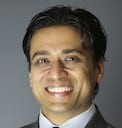 It’s hard to have a conversation with a friend or colleague where the issue of sleep doesn’t come up. In most cases, you’ll hear people say there’s is not restful and they are trying a range of things, from a new mattress to meditation or white noise to address it. Some may describe a medical condition, like sleep apnea, requiring a mask and other paraphenalia to accomplish a good night’s rest. Dr. Abhinav Singh’s new book, “Sleep to Heal: 7 Simple Steps to Better Sleep” is a great guide to determining what routines and practices you can undertake to get a better night’s sleep. He will also convince you, if you’re not already, that it is key to living a better, long life. Along with exercise and nutrition it makes up the third pillar of health and is not to be taken lightly. In fact, he might suggest you get yourself to a sleep clinic, overseen by a medical doctor like him, if your case is severe and protracted and not just occasional restless sleep. It’s a fascinating topic and we delve into a range of nuances. His lively presentation will assure you stay awake for the entire conversation.
It’s hard to have a conversation with a friend or colleague where the issue of sleep doesn’t come up. In most cases, you’ll hear people say there’s is not restful and they are trying a range of things, from a new mattress to meditation or white noise to address it. Some may describe a medical condition, like sleep apnea, requiring a mask and other paraphenalia to accomplish a good night’s rest. Dr. Abhinav Singh’s new book, “Sleep to Heal: 7 Simple Steps to Better Sleep” is a great guide to determining what routines and practices you can undertake to get a better night’s sleep. He will also convince you, if you’re not already, that it is key to living a better, long life. Along with exercise and nutrition it makes up the third pillar of health and is not to be taken lightly. In fact, he might suggest you get yourself to a sleep clinic, overseen by a medical doctor like him, if your case is severe and protracted and not just occasional restless sleep. It’s a fascinating topic and we delve into a range of nuances. His lively presentation will assure you stay awake for the entire conversation.
Podcast: Play in new window | Download
 The words we hear from Israeli government and military officials is that the end game is to rid Gaza of Hamas, the terrorist group that runs it and committed unspeakable atrocities against Israeli citizens on October 7. Yet, if history is a guide, the overwhelming military response now being visited upon Hamas, and civilians who cannot get out of the way, by Israel Defense Forces may have the opposite effect and breed a new generation of terrorists, thus allowing the cycle of violence to erupt again and again. Our guest today, Robert Pape feels that Israel is undertaking this campaign with military tactics, but should be approaching it with a political strategy. Robert Pape, a professor of political science and director of the University of Chicago Project on Security and Threats, has a four-pronged approach which he offers toward the end of our conversation which he feels might pave the road to a more lasting peace. The whole exchange is really worth a listen. Much history is shared to give context to what you are seeing.
The words we hear from Israeli government and military officials is that the end game is to rid Gaza of Hamas, the terrorist group that runs it and committed unspeakable atrocities against Israeli citizens on October 7. Yet, if history is a guide, the overwhelming military response now being visited upon Hamas, and civilians who cannot get out of the way, by Israel Defense Forces may have the opposite effect and breed a new generation of terrorists, thus allowing the cycle of violence to erupt again and again. Our guest today, Robert Pape feels that Israel is undertaking this campaign with military tactics, but should be approaching it with a political strategy. Robert Pape, a professor of political science and director of the University of Chicago Project on Security and Threats, has a four-pronged approach which he offers toward the end of our conversation which he feels might pave the road to a more lasting peace. The whole exchange is really worth a listen. Much history is shared to give context to what you are seeing. Fake on-line reviews permeate every sector of commerce, from the purchase of hard goods to the doctor you to choose, to the restaurant you try, to the plumber who has five stars. Does he really? It’s a complex web of lies that has developed in this vital space for e-commerce. Finally, the federal government, under the auspices of the Federal Trade Commission, is going about the process of rule making in this area because the bad practices are costing all of us money as we blindly believe that ‘fellow customers’ experiences’ are what they say they are, when in truth, they are not. There are all kinds of deceptive practices, too numerous and complex to describe, which result in fake reviews, payment for positive reviews, and the suppressing of negative reviews. Isn’t this fraud and shouldn’t government hold people to account? The question is who should that be? The tech companies, like Google and Yelp, for example, the platforms on which products are sold, like Amazon, or the sellers themselves? Kay Dean, who founded fakereviewwatch.com, helps us unpack a world we better begin to understand or expect disappointment given the ever increasing dependence we place on on-line reviews. She is an invaluable resource in this space.
Fake on-line reviews permeate every sector of commerce, from the purchase of hard goods to the doctor you to choose, to the restaurant you try, to the plumber who has five stars. Does he really? It’s a complex web of lies that has developed in this vital space for e-commerce. Finally, the federal government, under the auspices of the Federal Trade Commission, is going about the process of rule making in this area because the bad practices are costing all of us money as we blindly believe that ‘fellow customers’ experiences’ are what they say they are, when in truth, they are not. There are all kinds of deceptive practices, too numerous and complex to describe, which result in fake reviews, payment for positive reviews, and the suppressing of negative reviews. Isn’t this fraud and shouldn’t government hold people to account? The question is who should that be? The tech companies, like Google and Yelp, for example, the platforms on which products are sold, like Amazon, or the sellers themselves? Kay Dean, who founded fakereviewwatch.com, helps us unpack a world we better begin to understand or expect disappointment given the ever increasing dependence we place on on-line reviews. She is an invaluable resource in this space.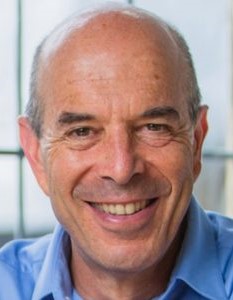 Forty countries around the world had a majority of their populations living in cities in 1960, whereas today that figure is more than one hundred. And that trajectory is projected to continue in dramatic fashion throughout the century, in both developed and developing nations. For the first time in human history half of humanity lives in cities. Will those cities continue to be the epicenters of our greatest achievements or will they be riven with strife, division and growing inequality? The answer lies in our ability to remake much about cities to avoid the worst impacts of many people in relatively dense centers, including pandemics and the effects of climate change. Our guest, visionary Oxford professor, Ian Goldin, and his co-author, Tom Lee-Devlin of the prestigious Economist Magazine, having written “Age of the City: Why Our Future Will Be Won or Lost Together” are betting on the resilience and creativity of the urban environment, historically and in the present, to win the day. Let’s hope they’re right.
Forty countries around the world had a majority of their populations living in cities in 1960, whereas today that figure is more than one hundred. And that trajectory is projected to continue in dramatic fashion throughout the century, in both developed and developing nations. For the first time in human history half of humanity lives in cities. Will those cities continue to be the epicenters of our greatest achievements or will they be riven with strife, division and growing inequality? The answer lies in our ability to remake much about cities to avoid the worst impacts of many people in relatively dense centers, including pandemics and the effects of climate change. Our guest, visionary Oxford professor, Ian Goldin, and his co-author, Tom Lee-Devlin of the prestigious Economist Magazine, having written “Age of the City: Why Our Future Will Be Won or Lost Together” are betting on the resilience and creativity of the urban environment, historically and in the present, to win the day. Let’s hope they’re right.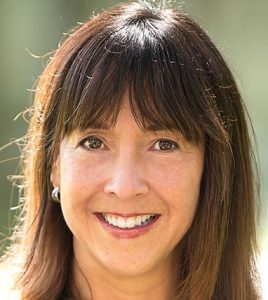 There’s a commercial on television with a famous chef telling us that the most important tool he uses in his kitchen is his brain. And that’s the same organ needed to deal with chronic pain according to our guest, Dr. Afton Hassett, an associate professor and Director of Pain and Opioid Research at the University of Michigan. In her new book, “Chronic Pain Reset: 30 Days of Activities, Practices, and Skills to Help You Thrive,” she takes you through a multi pronged approach including pain self-management, that allows patients to function more effectively. Given that nearly 50 million people in the U.S. alone are affected by chronic pain and the painkillers we have been using, like Oxycontin, have had such devastating consequences for so many, other modalities such as massage, physical therapy, acupuncture, mindfulness, yoga and others deserve an opportunity to provide relief. As more studies are done demonstrating the effectiveness of these approaches and insurance companies are beginning to pay for some of them, perhaps we can deal with chronic pain, which outdistances diabetes, hypertension, and depression, in new cases.
There’s a commercial on television with a famous chef telling us that the most important tool he uses in his kitchen is his brain. And that’s the same organ needed to deal with chronic pain according to our guest, Dr. Afton Hassett, an associate professor and Director of Pain and Opioid Research at the University of Michigan. In her new book, “Chronic Pain Reset: 30 Days of Activities, Practices, and Skills to Help You Thrive,” she takes you through a multi pronged approach including pain self-management, that allows patients to function more effectively. Given that nearly 50 million people in the U.S. alone are affected by chronic pain and the painkillers we have been using, like Oxycontin, have had such devastating consequences for so many, other modalities such as massage, physical therapy, acupuncture, mindfulness, yoga and others deserve an opportunity to provide relief. As more studies are done demonstrating the effectiveness of these approaches and insurance companies are beginning to pay for some of them, perhaps we can deal with chronic pain, which outdistances diabetes, hypertension, and depression, in new cases. Our guest, by her own admission, is now a West Coast liberal, a professor no less at USC in public policy, and yet she has great appreciation for the sturdiness and values of Americans in the nation’s heartland. Having grown up in Danville, Pennsylvania, she is no stranger to the people she interviewed for her book, “The Overlooked Americans: The Resilience of Our Rural Towns and What It Means for Our Country.” Since she did not fly over rural America but actually talked to many people who feel left behind, not just about them, and buttressed those conversations with much research, her conclusions may surprise you. For example, she concludes that rural Americans are open-minded and tolerant and that, for the most part, rural Americans are doing just fine. Want to hear more? Hit play below…
Our guest, by her own admission, is now a West Coast liberal, a professor no less at USC in public policy, and yet she has great appreciation for the sturdiness and values of Americans in the nation’s heartland. Having grown up in Danville, Pennsylvania, she is no stranger to the people she interviewed for her book, “The Overlooked Americans: The Resilience of Our Rural Towns and What It Means for Our Country.” Since she did not fly over rural America but actually talked to many people who feel left behind, not just about them, and buttressed those conversations with much research, her conclusions may surprise you. For example, she concludes that rural Americans are open-minded and tolerant and that, for the most part, rural Americans are doing just fine. Want to hear more? Hit play below…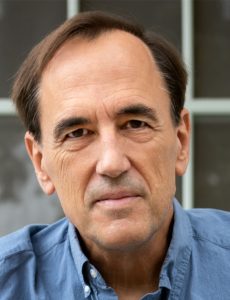 Heat has a pretty ‘cool’ connotation–that song is hot, let’s getaway to a warm destination and that car is smokin’–but in the modern parlance of climate change– heat is anything but. In fact, it lies at the root of virtually all of the climate related calamities–wildfires, hurricanes and just suffocating heatwaves that may not show up as the cause on a death certificate, but often is. It not only kills more people directly than the storms and events emanating from it, but it is stealth. Looking out the window on a nice day, it is impossible to tell whether it’s 70 degrees or 105. And heat does unimaginable things to the body. When our internal temperatures hit 102 or 103, we can pass out. In that process our body is sending blood to the skin, abandoning internal organs, including the brain. According to Jeff Goodell, a prolific writer on climate issues and author of “The Heat Will Kill You First: Life and Death on a Scorched Planet,” the old, sick and poor are more vulnerable to extreme heat, but the rest of us should not be complacent. The summer of 2023, the warmest on record, is a harbinger of what’s to come. And the heat is coming for all of us and will affect migration patterns, our food supply and all life on earth.
Heat has a pretty ‘cool’ connotation–that song is hot, let’s getaway to a warm destination and that car is smokin’–but in the modern parlance of climate change– heat is anything but. In fact, it lies at the root of virtually all of the climate related calamities–wildfires, hurricanes and just suffocating heatwaves that may not show up as the cause on a death certificate, but often is. It not only kills more people directly than the storms and events emanating from it, but it is stealth. Looking out the window on a nice day, it is impossible to tell whether it’s 70 degrees or 105. And heat does unimaginable things to the body. When our internal temperatures hit 102 or 103, we can pass out. In that process our body is sending blood to the skin, abandoning internal organs, including the brain. According to Jeff Goodell, a prolific writer on climate issues and author of “The Heat Will Kill You First: Life and Death on a Scorched Planet,” the old, sick and poor are more vulnerable to extreme heat, but the rest of us should not be complacent. The summer of 2023, the warmest on record, is a harbinger of what’s to come. And the heat is coming for all of us and will affect migration patterns, our food supply and all life on earth.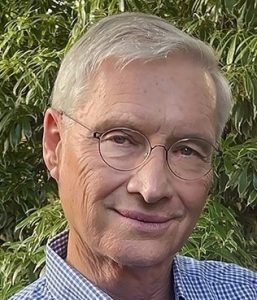 Anyone who’s paying attention has got to ask him or herself whether America can do the hard work of retaining a vibrant democratic system. It requires constant tending and adapting by its citizens. We must maintain a level of commitment to making the laws fair, bringing all citizens into the process, providing a foundational understanding of what a democracy really is and serving on local boards and voluntary organizations committed to the complex web of demands that go into of this. As our guest points out, to cut to the quick, at its root having a democracy means ‘no boss.’ I doubt you ever thought of it that way. Our chief executive, known as a President, really has limited constitutional authority to act. The system was designed to involve a range of actors in all branches and at all levels of government.
Anyone who’s paying attention has got to ask him or herself whether America can do the hard work of retaining a vibrant democratic system. It requires constant tending and adapting by its citizens. We must maintain a level of commitment to making the laws fair, bringing all citizens into the process, providing a foundational understanding of what a democracy really is and serving on local boards and voluntary organizations committed to the complex web of demands that go into of this. As our guest points out, to cut to the quick, at its root having a democracy means ‘no boss.’ I doubt you ever thought of it that way. Our chief executive, known as a President, really has limited constitutional authority to act. The system was designed to involve a range of actors in all branches and at all levels of government.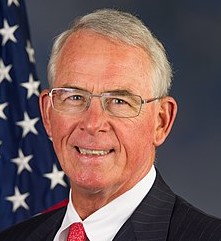 Francis Rooney, who was the U.S. Ambassador to the Holy See from 2005 to 2008 and later a U.S. Congressman, gives us his unique perspective on domestic politics and international affairs at a period in our history with together the combination is making the American public very uneasy about what may lie ahead.
Francis Rooney, who was the U.S. Ambassador to the Holy See from 2005 to 2008 and later a U.S. Congressman, gives us his unique perspective on domestic politics and international affairs at a period in our history with together the combination is making the American public very uneasy about what may lie ahead.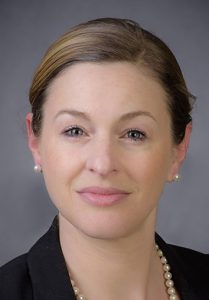 America has had an all volunteer armed forces for 50 years now and the likelihood of going back to a draft anytime soon is remote. Yet, our military obligations are many as we have service members positioned around the globe, most recently deploying thousands to watch the simmering powder keg in the Middle East. A small percentage of young Americans would seriously consider military service–2023 is the worst year for recruiting since the All Volunteer Force began–and many others do not qualify because of emotional, physical, and academic reasons. The military is well aware that it has a problem and is using bonuses, special training programs and considering changes in standards to address this problem. In fact, they are even initiating new branding campaigns and attempting to use social media more effectively. The other issue they’re facing at this moment is a hot job market in America as private employers are adding to pay and benefits. And capping all this is that there is no particular patriotic motivation to join on the heels of less than conclusive efforts in the Middle East and uncertainty as to whether China is an enemy or a competitor. To discuss all of this with us is Lindsay Cohn, Ph.D. and an Associate Professor of National Security Affairs at the Naval War College.
America has had an all volunteer armed forces for 50 years now and the likelihood of going back to a draft anytime soon is remote. Yet, our military obligations are many as we have service members positioned around the globe, most recently deploying thousands to watch the simmering powder keg in the Middle East. A small percentage of young Americans would seriously consider military service–2023 is the worst year for recruiting since the All Volunteer Force began–and many others do not qualify because of emotional, physical, and academic reasons. The military is well aware that it has a problem and is using bonuses, special training programs and considering changes in standards to address this problem. In fact, they are even initiating new branding campaigns and attempting to use social media more effectively. The other issue they’re facing at this moment is a hot job market in America as private employers are adding to pay and benefits. And capping all this is that there is no particular patriotic motivation to join on the heels of less than conclusive efforts in the Middle East and uncertainty as to whether China is an enemy or a competitor. To discuss all of this with us is Lindsay Cohn, Ph.D. and an Associate Professor of National Security Affairs at the Naval War College.